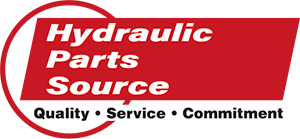The Importance of Closing the Sales Gap for Hydraulics Distributors: Part 1
The classic adage about not reinventing the wheel applies to sales approaches in some simple but important ways for hydraulic parts suppliers.
What Does This Mean?
Generally, it can be assumed that most end-user companies in the same industry have similar processes for producing whatever it is they produce.
Because the end-users are customers who buy hydraulic system parts, fluid power industry distributors can take what they learn about customers’ specific machines, parts and processes and put that knowledge to use when selling to other companies in that industry.Essentially, unless they have 100% market share, distributors can leverage their experience distributors can leverage their experience with their existing customer base and expand business with like industries in new markets.
While closing the gap of hidden opportunities this way sounds simple and attractive, it brings to mind another old adage: “It’s easier said than done”. It’s worth doing, however. Here’s what’s involved in the typical sales gap analysis process, and what you need to know to decide if this sales approach is right for your company.
You’ll Dive Deeper into Your Current Customer Base
For fluid power distributors, closing the sales gap is a sales approach that starts with taking a closer look at end-user customers.
When performing the process, you’ll often find opportunities in a specific industry and/or with existing customers where you have a gap in your product mix. This type of analysis will often highlight opportunities for new product, services, or technology that you can offer.
You may also find end-user customers who are within your geographical market, that have facilities that span throughout the region, nationally, or even internationally. By networking within your sales organization, you may identify new business opportunities, offering sales expansion possibilities for your company.
You'll Talk to Your Customers' Competitors
Learning about competitors comes from research, including electronically searching for similar companies, then reaching those individuals through sales and marketing efforts, informal conversations, trade show visits and other networking activities.Part of closing the sales gap will include identifying your end-user customers competitors and using your industry knowledge and process expertise to gain credibility with new prospective customers.
Each marketing touch and informal conversation will bring back new information that you’ll need in order to improve your outreach to the next prospect. Expanding the mix and depth of marketing activities and conversations helps bring to light unmet needs and new leads.
Finding the right contacts and starting the right conversations are key, but sometimes distributors operate in a vacuum, focusing on territory, a specific line of products, or other limited aspects of a business. If these focus areas exist in your business, make sure to adjust your scope accordingly.
You’ll Seek Help from Engaged Manufacturers
All salespeople are looking for productive conversations that lead to sales. They are looking for topics to build their credibility as a knowledgeable and reliable supply partner. The more intelligence they can gain from their manufacturer partners and the more two-way conversations they have, the better.End-user customers are helpful for distributors in the ways we’ve discussed, but they too are limited in the scope of their vision. Customers are in a single industry, in some cases operating one location, or a series of closely located venues. Often, they don’t have a broad view of the fluid power industry.
This is where manufacturers are helpful. What distributor wouldn’t want a manufacturer, vendor, or supplier that would approach them with this intelligence? Wouldn’t distributors find extreme value with manufacturers that have a different perspective on the industry?
The answer to both questions is yes.
The best manufacturers / suppliers are looking for like-minded people who want to have a strategic conversation about how to go after and create new business. They believe they should bring value to distributors that goes beyond selling parts, for instance offering insights into different industry sectors such as what types of machines and componentry fuel the manufacturing process.
To this end, distributors should seek out enthusiastic, results-driven suppliers (like HPS) to have that level of relationship.
You’ll Go Both Deep & Wide
When considering a sales approach that closes the gap, it’s important to “go deep” by studying your customers in order to leverage your success and process knowledge to gain new opportunities with like companies.It is equally vital for distributors to form strong relationships and demand more from their suppliers. Manufacturers tend to have an in-depth knowledge of the manufacturing process and industries that incorporate their product and technology. This information is key in identifying, penetrating, and capturing new business.
See Part 2 of this series for step-by-step details on how to close the sales gap.

